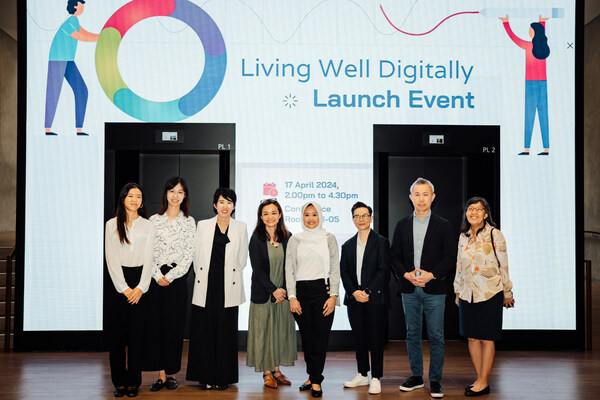 |
INNSBRUCK, Austria, Feb. 24, 2023 /PRNewswire/ -- Today, MED-EL, a leader in implantable hearing solutions, celebrates together with everyone living with and benefiting from cochlear implants. World Cochlear Implant Day pays tribute to the tremendous technological developments since the modern cochlear implant was first invented 45 years ago. To MED-EL, it is also reason to acknowledge the great successes: Around 1 million cochlear implants (CIs) have been implanted, helping people all around the world to hear.[1]
The cochlear implant systems that we know today with small designs and built-in future-ready technology have come a long way since Austrian scientists Ingeborg and Erwin Hochmair began working on their first devices in the early 1970s. While the initial CIs required bulky body-worn audio processors, they revolutionized the way individuals with sensorineural hearing loss could experience the world by restoring a sense of sound and speech. Today's hearing implants are much smaller, worn behind the ear, and feature an innovative technology that enables recipients to hear all sounds - even the fine nuances of music. Ten years ago, the RONDO audio processor by MED-EL further simplified life for its users through integrating microphone, processor, coil, and power supply in one compact device about the size of a coin.
The future of cochlear implants looks just as exciting, with totally implantable CIs already in clinical trials, as well as new features incorporating AI.
Enhanced quality of life
The continuous improvements in technology and design offer people of all ages with hearing loss new quality of life. Studies have shown that children born without hearing benefit most when they receive implants as early as possible, ideally in their first year of life.[2] Early implantation provides them the chance to develop similar language skills as children with normal hearing abilities.[3] Colleen, a US-based mother, says about her son, "Liam's implants are a part of him but do not define or limit him in any way. Because of his implants, he now has exactly the life I envisioned for him as a baby."
Fortunately, implants are not only for children. A CI can also restore quality of life for adults with hearing loss, facilitating a more active social life as well as improved relationships with families and friends.
"Without my cochlear implant, I wouldn't have been able to achieve all the accomplishments I did over the years and have such a good relationship with my family, friends, and teachers," says Sharlene, a CI recipient from the Philippines.
Yet, many potential candidates do not receive a CI. While almost all implants for children are reimbursed, this is hardly the case for adults, leaving many individuals with severe to profound hearing loss disadvantaged. On average, less than 10% of people who could benefit from a CI actually receive one.[4]
Addressing hearing loss as early as possible
Hearing loss is still ignored or accepted as being part of ageing. However, scientists recently discovered that untreated hearing loss can increase the risk of dementia by as much as 8%.[5] This highlights the importance of taking even the slightest trace of hearing loss seriously - not only for oneself but also for loved ones.
"Don't accept hearing loss as part of life and ageing. If you or someone you know is having difficulty hearing, it is important to seek professional advice at an early stage," urges Ingeborg Hochmair, founder and CEO of MED-EL.
MED-EL offers valuable information on its website, including an overview of the various types of hearing loss and a free online hearing test that can help identify a potential hearing loss.
For more information about cochlear implants from MED-EL visit www.medel.com/hearing-solutions/cochlear-implants.
Talk to people with cochlear implants around the world at www.hearpeers.medel.com/connect.
About MED-EL
MED-EL Medical Electronics, a leader in implantable hearing solutions, is driven by a mission to overcome hearing loss as a barrier to communication and quality of life. The Austrian-based, privately owned business was co-founded by industry pioneers Ingeborg and Erwin Hochmair, whose ground-breaking research led to the development of the world's first micro-electronic multi-channel cochlear implant (CI), which was successfully implanted in 1977 and was the basis for what is known as the modern CI today. This laid the foundation for the successful growth of the company in 1990, when they hired their first employees. To date, MED-EL has more than 2,500 employees from around 80 nations and 30 locations worldwide.
The company offers the widest range of implantable and non-implantable solutions to treat all types of hearing loss, enabling people in 137 countries enjoy the gift of hearing with the help of a MED-EL device. MED-EL's hearing solutions include cochlear and middle ear implant systems, a combined electric acoustic stimulation hearing implant system, auditory brainstem implants as well as surgical and non-surgical bone conduction devices. www.medel.com
1. Zeng, F.-G. (2022). Celebrating the one millionth cochlear implant. JASA Express Letters, 2(7), 1-8.
2. Culbertson SR et al. (2022): Younger Age at Cochlear Implant Activation Results in Improved Auditory Skill Development for Children With Congenital Deafness. J Speech Lang Hear Res. 2022 Sep 12;65(9):3539-3547.
3. May-Mederake B et al. (2010): Evaluation of auditory development in infants and toddlers who received cochlear implants under the age of 24 months with the LittlEARS) Auditory Questionnaire. Int J Pediatr Otorhinolaryngol. 2010 Oct;74(10):1149-55.
4. De Raeve L, Van Hardeveld R (2013): Prevalence of cochlear implants in Europe: What do we know and what can we expect? Journal of Hearing Science, 2013, 3 (4):12.
5. Livingston G et al. (2020): Dementia prevention, intervention, and care: 2020 report of the Lancet Commission. Lancet. 2020 Aug 8;396(10248):413-446.
Contact:
www.medel.com/press-room












